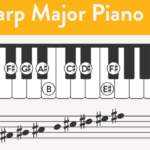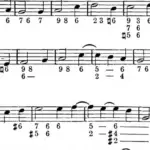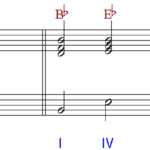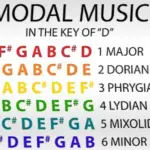
Are you wondering what the best microphone for recording piano is?
With software, synthesizers, and inbuilt recording features in pianos and keyboards, the need to record piano may sound a little old-fashioned.
However, despite the advancements, recording piano using good quality microphones remains a constant. There’re countless situations when one feels the need to record a real acoustic piano. Such as onstage, during a live performance, onset, and even during an orchestra.
Obtaining a sound quality recording in such situations is imperative. For example, the frequency of a piano can range from 20 Hz to 20KHz. This means that a microphone, no short of being the best and most reliable one, should be used to record the piano.
Below is a list of the top andh2 seven best microphones for recording the piano. Let’s take a look at each. But before we go ahead with it, let’s first analyze the features a microphone must have to record the piano in the best way possible.
Since this is a comprehensive post, feel free to use these quick links to jump straight to the section you want:
- What Is the Ideal Microphone for Recording Piano?
- Best Microphone for Recording Piano
- 3 Best Ways to Record Piano
- Frequently Asked Questions
- What’s the Best Microphone for Recording Piano?
What Is the Ideal Microphone for Recording Piano?
To record the best quality piano tunes, one must understand the types of microphones available and their functionality.
Before discussing the best microphone for recording piano, let us dive into the broad category they’re grouped.
Dynamic Microphone
Dynamic or magneto-dynamic kind of microphones is prevalent in piano recording. They’re handy for live performances as they are least likely to be damaged or broken by loud noises.
It also use a magnetic field to produce the electric current.
Condenser Microphone
Condensers are increasingly popular too. However, their way of delivering electrical signals varies from dynamic microphones in that they use certain materials such as gold-covered aluminum to produce an electrical current in its diaphragm.
Ribbon Microphone
Ribbon microphones have lost popularity over the recent years but are in no way out of use. Similar to dynamic microphones, they use magnetic fields to generate the electric current.
They are called ribbon microphones as they use a thin sheet of metal. To put things in perspective, a combination of both. I.e., dynamic and condenser.
Best Microphone for Recording Piano
1. MXL Mic 770 – Cardoid Condenser Microphone
MXL Mic 770 is the most popular microphone, It is a must-have to record a piano. With a unique design and outstanding features, it’s hardly short of being the best.
PROS:
- The mic is durable and reliable and expected to last long.
- Its FET preamp allows for a wide dynamic range.
- In addition, the polar pattern of the Cardioid range is very suitable and ideal for recording.
CONS:
- The lowest frequency it can record is 30Hz, which is inconvenient considering that piano frequency ranges from 26 Hz to 20 kHz.
2. Shure SM7B Vocal Microphone
Shure SM7B Vocal Microphone is an excellent microphone for recording pianos. It’s the best microphone for PODCAST & BROADCAST. Moreover, it allows you to more control over the sounds.
PROS:
- Wide range of recurrence reactions
CONS:
- A high number of screens around can cause an electromagnetic murmur.
- The recurrence reactions don’t meet up with reality.
3. Rode NT1-A
Rode NT1-A is a modern and updated microphone. It’s perfect for recording acoustic piano. You can also record a frequency of 20 Hz to 20 kHz, which is impressive. It’s ideal for recording studio sessions.
PROS:
- Great for acoustic/studio recording
- Amazing sound quality
- Budget-friendly
- Dynamic range is outstanding.
CONS:
- It’s a heavy microphone
- It requires a good pre-amp/ audio interface.
4. Audio-Technica AT2020
Audio-Technica AT2020 offers decent design, feasible pricing, and unique features, Audio-Technica AT 2020 is a great microphone to get. It’s also regarded as among the best USB microphone for recording piano.
PROS:
- The sound quality is great
- It’s pretty adaptable and versatile and can handle lots of applications.
- Great for rookies and beginners
- The cable length is good too.
CONS:
- The storage bag is unnecessarily flashy.
- No additional padding is there.
- It does not have any headphone jacks.
- It can only record in cardioid mode.
5. AKG Pro Audio C414
AKG Pro Audio C414 is one of the oldest piano microphones out there. It also tells us that it’s pretty reliable.
The most remarkable thing about that it’s versatile. It has a range of different features that allow it to work for most pianos. This is the sole reason it has been used for such a long time.
Its frequency range of 20 Hz to 20 kHz is also very convenient.
PROS:
- There are switches to switch between the frequencies while recording.
- So you have the liberty to choose between 5 different types of polar patterns.
- It gives you a sense of warmth and clarity.
CONS:
- Close miking isn’t a feature that comes with it.
- Furthermore, the switches to switch between the frequencies have a downside that during recording, they cause issues.
6. Shure SM57-LC
Shure SM57-LCknown for handling high volumes of music, this is a preferred mic choice for instruments such as drums and bass. In addition, its close-mic feature allows the mic to be placed as close to the piano as possible.
PROS:
- Again, the mic here is very durable and reliable.
- Ideal for close micing situations such as live shows.
- It has a high SPL, which means that it can handle very high volumes without any issues.
CONS:
- The lowest and highest frequency it can record is 40 Hz and 15 kHz, which does not cover the highest and lowest frequency of a piano (i.e., 26Hz and 30KHz, respectively), so that could be an issue.
7. Rode M5-MP
Rode M5-MP are well reputed and trusted among all. It does justice to that reputation.
There’s a notion that the Rode M5 is a less expensive version of Rode NT5, which makes it very feasible for those looking for a similar product.
PROS:
- It can be set up quite close to the piano
- It has matching pairs, which are suitable for stereo miking/ recording.
CONS:
- There’s a slight problem in the 5th-octave recording, which may be unpleasant.
3 Best Ways to Record Piano
The best way to mic a piano for recording is one of these three methods, which involve a difference in microphone placement.
- By placing microphones inside the Piano
- By placing microphones outside of the Piano
- By recording using a single microphone
Frequently Asked Questions
Q: What is the best budget piano microphone as of 2021?
A: As of 2021, here’s a list of the best budget piano microphones:
- Pyle-Pro Includes 15ft XLR Cable to 1/4
- Samson SAGOMIC Go
- Blue Microphones iCE
- JLab Talk Go USB Microphone
- Shure SM58 Handheld Dynamic Vocal Microphone
Q: How to mic an upright piano correctly?
A: While there’re numerous upright piano miking techniques in the market, one is that by placing two microphones either at the top of the piano, keeping the cover open, or removing the front cover and placing the microphones underneath. Most of the microphones enlisted above are among the best mic for an upright piano.
What’s the Best Microphone for Recording Piano?
After considering all the pros and cons and the unique features of every microphone mentioned in the list, hopefully, you can decide for yourself which one to choose and go ahead with.
It’s all about finding that perfect balance of features which includes pricing, miking techniques, appearance, sound quality, ease of recording that suits your need. We hope this article has helped help you make a choice.
We hope now you can easily choose the best microphone for recording piano.
You can also checkout out guide on What’s Keyboard Weighted Keys And Why You Need to Use.
Want to know about Guitar tricks? Check out an An Exclusive Guitar Tricks Review in 2021.
Adam Smith is the Founder, writer, and news publisher of GetMuzeek, where he shares the latest updates, insights, and stories from the world of music. With a passion for uncovering fresh trends and delivering engaging content, Adam keeps readers informed and inspired.






